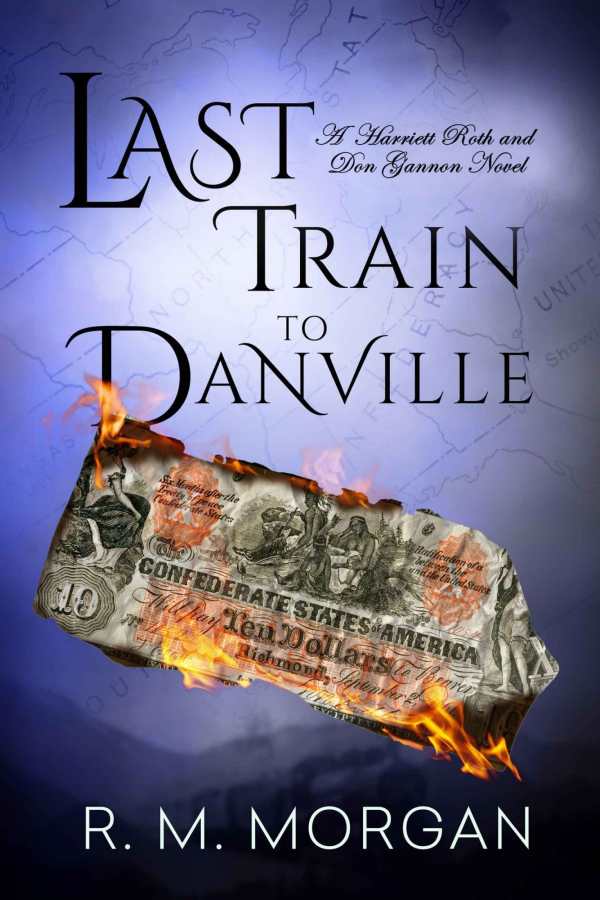Last Train to Danville
While investigating a murder, colleagues at a detective agency muse through their motivations and personal connections in this insightful mystery novel.
In R. M. Morgan’s exciting mystery novel Last Train to Danville, a history-loving private investigator works to solve a murder in the American South.
Don, a private detective, returns to sleuthing after an old school friend, Digger, is murdered. The method was poison, though the day prior, a hunter also almost shot Digger in the woods. Digger’s fiancée, Lilith, is convinced that his friend Hayes killed Digger after stealing a Civil War-era map in the hope of locating a buried treasure.
Determined to catch the killer red-handed, Don follows Lilith’s lead in investigating violent, self-centered Hayes. But the more he uncovers about the man, the more he realizes that they may have the wrong suspect. The distraction leads to more danger and tragedy: instead of remaining open-minded and searching for evidence that may point to a killer, they stalk and harass Hayes in the hopes that he’ll do something incriminating. When Don realizes that this was a catastrophic mistake, he entraps the true murderer, and the novel careens toward a contrived conclusion. Interesting historical evidence concerning the Civil War map and German World War II memorabilia is glossed over in favor of action and drama.
When Don and others think deeper about their motivations and connections to others, the book is insightful and at its best. Indeed, the bulk of the story hones in on Don and his colleagues’ interpersonal relationships and the effect that their somewhat backward investigation has on them. They grow as people and colleagues as they learn more about each other and the ways that they handle challenges. Don’s awkwardness with dating is entertaining, too, and he stumbles through working with an ex whom he continues to admire. Hayes’s layered motivations make him sympathetic, even when he resorts to violent means.
People’s exchanges are often succinct and captivating. They are devoted to gathering evidence for Don’s case, and to interpersonal teasing. Such exchanges reveal people’s strong emotions in a context-building way. But as it works to capture uncommon accents and people’s personality quirks, the book’s dialogue sometimes becomes awkward, too. for example, Digger’s father favors long-winded speech patterns that distract from the surrounding narrative. And the true culprit in Digger’s death is constructed in shallow terms; the reasoning behind some of their past decisions is obscured.
Conveying a distinct sense of its North Carolina setting, Last Train to Danville is a character-driven thriller that focuses on the personal challenges that drive people to commit crimes.
Reviewed by
Aimee Jodoin
Disclosure: This article is not an endorsement, but a review. The publisher of this book provided free copies of the book and paid a small fee to have their book reviewed by a professional reviewer. Foreword Reviews and Clarion Reviews make no guarantee that the publisher will receive a positive review. Foreword Magazine, Inc. is disclosing this in accordance with the Federal Trade Commission’s 16 CFR, Part 255.

